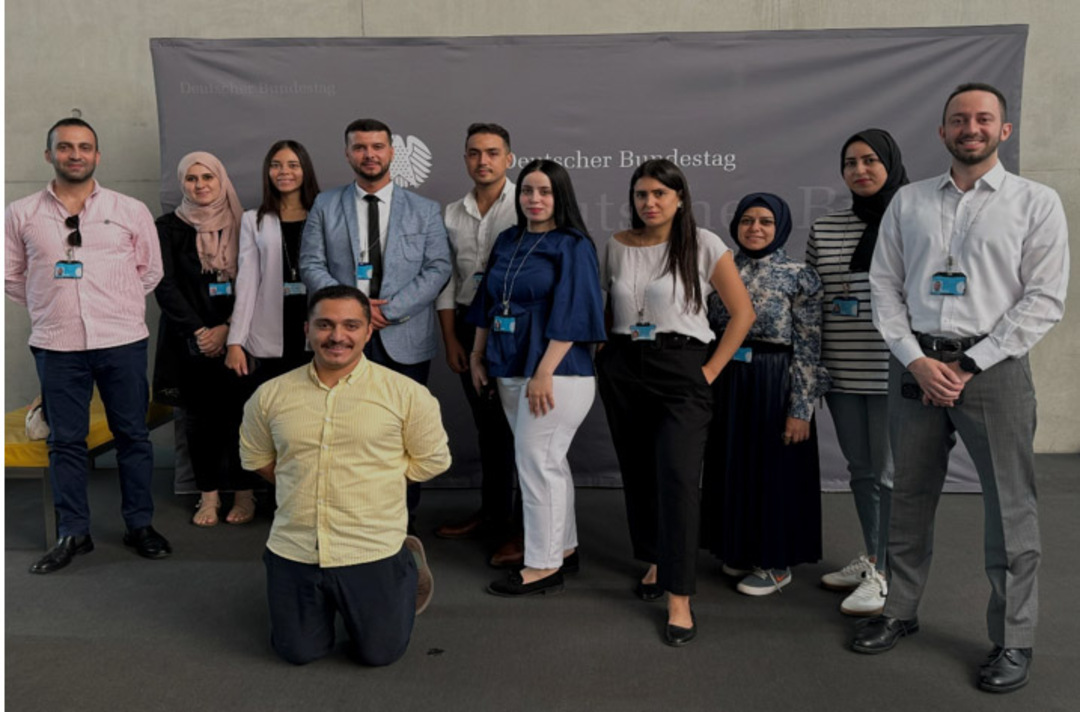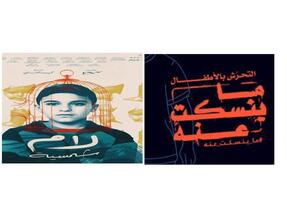-
The IPS Programme: Fostering Democracy, Transparency, and Cultural Understanding

The International Parliamentary Scholarship (IPS) programme, hosted in Berlin, provided participants from the MENA region with an invaluable opportunity to delve into the workings of the German parliamentary system.
As a participant, I had the chance to engage in enriching discussions, workshops, and seminars, all centered around critical topics affecting both Germany and the Arab world. The programme not only broadened my understanding of democracy but also allowed me to explore the potential of energy partnerships, conflict resolution strategies, and the fight against corruption.
Key Topics Explored in the IPS Programme
Corruption and Transparency in the Arab World
One of the most impactful sessions during the programme was led by Dr. Tilman Hoppe, an expert in corruption and transparency. Dr. Hoppe focused on the detrimental effects of corruption in Arab countries, emphasizing the importance of international cooperation and transparency. His lecture illustrated how corruption undermines democracy and economic development in the region, and he provided practical insights on how countries can combat this issue. This session was particularly relevant for participants from the MENA region, where corruption often hinders political and economic progress.
Energy and Climate Change: Partnerships for a Sustainable Future
Another critical aspect of the programme was the exploration of energy partnerships between Germany and the MENA region, highlighted by experts Kirstin Löser and Anne Jacobs-Schleithoff. We visited a renewable energy facility, where we learned about Germany’s clean energy technologies and the potential for collaboration between Germany and Arab countries. These partnerships are crucial in addressing global challenges such as climate change and energy security. The experience offered a valuable perspective on how the MENA region could adopt similar strategies to transition toward more sustainable energy practices.
Conflict Management and Dialogue
Conflict and coexistence were at the heart of a workshop led by Dr. Anne Holper, which delved into conflict resolution strategies. The workshop underscored the importance of dialogue and understanding in resolving conflicts. This was complemented by a lecture from Gabriel Beauvallet-Bauchet, who provided a thorough overview of German democracy, particularly addressing the challenges of political polarization. The insights from this session resonated with many participants, especially those from conflict-affected regions, highlighting the role of communication and collaboration in fostering peace.
A Cultural Exchange and a Lesson in Diversity
One of the most enriching aspects of the IPS programme was the cultural exchange between participants from various countries, including Jordan, Syria, Iraq, Morocco, Tunisia, Algeria, Kuwait, Lebanon, and Egypt. Each participant shared a piece of their culture, and I had the opportunity to present a traditional Lebanese treat, "Dabke Biscuits." This exchange deepened our understanding of one another's backgrounds and traditions, fostering a sense of unity and mutual respect among the group.
Working with Deputy Johannes Schraps: A Deep Dive into the Legislative Process
As part of the programme, I completed a internship in the office of Deputy Johannes Schraps, a member of the SPD party. This experience allowed me to witness the daily workings of a German parliamentary office firsthand. I attended numerous meetings on various contemporary issues, including foreign policy, economic development, and social justice. Deputy Schraps was incredibly supportive, offering guidance and insight into the legislative process.
What truly surprised me during this internship was the work ethic of German deputies. They typically work over 100 hours a week and pay high taxes, driven by a commitment to public service. This stood in stark contrast to the situation in Lebanon, where many deputies contribute little to public life, avoid taxes, and are difficult to reach by the general public. In Germany, any citizen can request a meeting with their deputy, fostering a culture of accountability and accessibility. In Lebanon, such meetings are rare and often delayed, creating a significant gap between the people and their representatives.
Participating in the IPS programme was a transformative experience, allowing me to expand my knowledge of democracy, transparency, and international cooperation. I am deeply grateful to the German Embassy in Beirut for selecting me and to the IPS programme leaders for offering me this incredible opportunity. This programme not only strengthened my understanding of political systems but also enriched my personal and professional growth.
Through this experience, I have gained valuable insights that I will carry with me as I continue my journey in promoting democratic values and working towards positive change in my home country. Thank you to everyone involved in making this programme an unforgettable and rewarding experience.
By: Amina Younis
You May Also Like
Popular Posts
Caricature
BENEFIT Sponsors BuildHer...
- April 23, 2025
BENEFIT, the Kingdom’s innovator and leading company in Fintech and electronic financial transactions service, has sponsored the BuildHer CityHack 2025 Hackathon, a two-day event spearheaded by the College of Engineering and Technology at the Royal University for Women (RUW).
Aimed at secondary school students, the event brought together a distinguished group of academic professionals and technology experts to mentor and inspire young participants.
More than 100 high school students from across the Kingdom of Bahrain took part in the hackathon, which featured an intensive programme of training workshops and hands-on sessions. These activities were tailored to enhance participants’ critical thinking, collaborative problem-solving, and team-building capabilities, while also encouraging the development of practical and sustainable solutions to contemporary challenges using modern technological tools.
BENEFIT’s Chief Executive Mr. Abdulwahed AlJanahi, commented: “Our support for this educational hackathon reflects our long-term strategic vision to nurture the talents of emerging national youth and empower the next generation of accomplished female leaders in technology. By fostering creativity and innovation, we aim to contribute meaningfully to Bahrain’s comprehensive development goals and align with the aspirations outlined in the Kingdom’s Vision 2030—an ambition in which BENEFIT plays a central role.”
Professor Riyadh Yousif Hamzah, President of the Royal University for Women, commented: “This initiative reflects our commitment to advancing women in STEM fields. We're cultivating a generation of creative, solution-driven female leaders who will drive national development. Our partnership with BENEFIT exemplifies the powerful synergy between academia and private sector in supporting educational innovation.”
Hanan Abdulla Hasan, Senior Manager, PR & Communication at BENEFIT, said: “We are honoured to collaborate with RUW in supporting this remarkable technology-focused event. It highlights our commitment to social responsibility, and our ongoing efforts to enhance the digital and innovation capabilities of young Bahraini women and foster their ability to harness technological tools in the service of a smarter, more sustainable future.”
For his part, Dr. Humam ElAgha, Acting Dean of the College of Engineering and Technology at the University, said: “BuildHer CityHack 2025 embodies our hands-on approach to education. By tackling real-world problems through creative thinking and sustainable solutions, we're preparing women to thrive in the knowledge economy – a cornerstone of the University's vision.”
opinion
Report
ads
Newsletter
Subscribe to our mailing list to get the new updates!






















